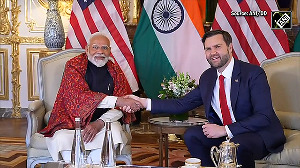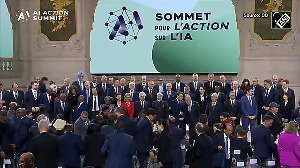Keeping in mind its huge agriculture sector, India is expected to link drastic reduction of huge financial support given to their farm sector by many western countries to the reduction of customs duty on agri-products by developing nations, in the WTO mini-ministerial beginning in Tokyo on Friday.
Unless the Western countries reduce their huge financial support to the agri-sector, any lowering of the present tariff level by India would be disadvantageous to the Indian farmers, said a senior official in the Indian delegation, being led by Commerce and Industry Minister Arun Jaitley and Agriculture Minister Ajit Singh.
India would also project its stand on the contentious issues relating to Trade Related Intellectual Property Rights, public health and services sectors and garner support from among the 23 participating nations.
The consensus arrived at the mini-ministerial would lay the basis for further discussions of the Ministerial Meeting, the apex body of the WTO, at Cancun in September 2003.
The whole emphasis of third world countries in these ministerial negotiations were to correct the Uruguay Round of agreements, which they believe contained large number of asymmetries in the implementation of the agreements, the official said.
Another sector where India would push forward its view was the Mode 4- free movement of professionals to different countries without actually gaining citizenship rights there.
Through the Mode-4, Indian professionals could go to work in other countries in specified number every year for a particular period without any immigration harassment and in return would not be entitled to any citizenship-related rights, the official said.
India would also focus on the need of several third world countries to get cheap medicines to fight various diseases as they did not have infrastructure to set up pharmaceutical industries.
The issue relating to availability of cheap medicines to all needy countries should be addressed quickly as many people were dying in third world countries due to unavailability of medicines, the official said.
Asked about the various deadlines to be met on theseissues as fixed during the Doha Ministerial meeting, the official, while fixing a certain amount of sanctity on these deadlines, said that no country could be forced to accept them without addressing its domestic problems.
He cited the example of the agreement on TRIPS and Public health related issues, which were to be implemented by June 30 2002, but was postponed to December and yet there was no consensus.






 © 2025
© 2025